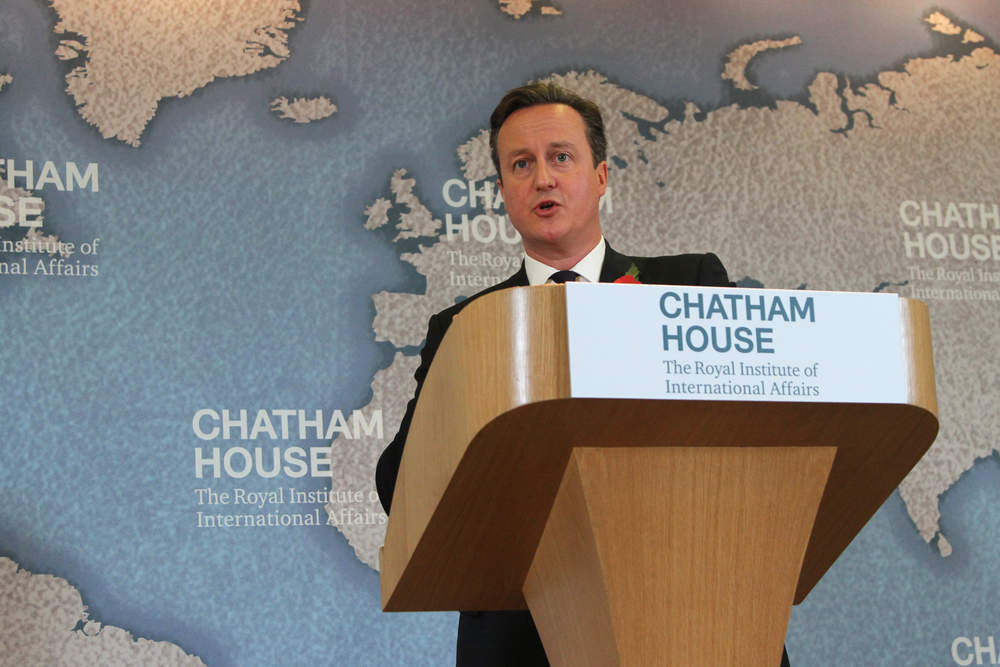
Former British prime minister and the man arguably responsible for the UK leaving the European Union, David Cameron, has been recorded at Davos saying Brexit is not the disaster he thought it could have been.
The former prime minister said at the World Economic Forum (WEF) that the Brexit vote was “a mistake not a disaster”.
The man who called the EU referendum says what he really thinks about Brexit…
In the corridors of the @wef, @David_Cameron is overheard speaking with business and political leaders from around the world – and they're all asking about Brexit. #WEF18 pic.twitter.com/z1pcbUJ87A
— 5News (@5_News) January 24, 2018
How well do you really know your competitors?
Access the most comprehensive Company Profiles on the market, powered by GlobalData. Save hours of research. Gain competitive edge.

Thank you!
Your download email will arrive shortly
Not ready to buy yet? Download a free sample
We are confident about the unique quality of our Company Profiles. However, we want you to make the most beneficial decision for your business, so we offer a free sample that you can download by submitting the below form
By GlobalDataCameron, speaking to steel tycoon Lakshmi Mittal, said:
As I keep saying, it’s a mistake not a disaster. It’s turned out less badly than we first thought. But it’s still going to be difficult.
Cameron headed up the campaign to remain in the EU leading up to the June 2016 vote. His campaign — which include most big British business and many well-known economists — warned of an immediate economic impact on the UK of a vote to leave the EU.
His referendum campaign was dubbed Project Fear and was reinforced by Treasury predictions that a Canada-style trade deal of the kind being contemplated in Brussels would cost British households £4,300 a year.
David Davis, the Brexit secretary, said this week that pre-referendum forecasts by the Treasury and BoE had turned out to be completely wrong. Davis told MPs yesterday that he expects to agree to a transition deal by the end of March.
Nick Macpherson, former Treasury permanent secretary, said this month:
If the government relentlessly focuses on achievable outcomes in Brussels and pursues a sensible economic policy at home, it could yet keep any lasting damage from Brexit to a minimum. But that remains a pretty big ‘if’.
While it is expected for those working on the UK’s departure from the European Union will be upbeat about Brexit there have been a number of high profile business figures saying they are increasingly positive about the UK’s post-Brexit outlook.
This morning the boss of house builder Crest Nicholson has said he was wrong on Brexit.
Speaking to BBC Radio 5 live’s Wake Up to Money, Stephen Stone said he had been “very concerned” about the potential hit to the economy from the referendum vote.
He said:
I was very concerned about the impact that might have on the economy, so we stopped buying land for a period which is why we ended up with more cash on the balance sheet at the end of that year than we might have done.
But it’s fair to say I got that wrong, and a lot of other people now accept they’ve got that wrong – the economy is proving to be reasonably robust, we’re still seeing high levels of employment, low interest rates, and they’re the factors that are supporting the new build housing market.
Earlier this week former Conservative Treasury minister Lord O’Neill has said Britain’s growth forecasts look set to be boosted with a global outlook stronger than anticipated, meaning the Brexit outlook is much brighter.
Downcast expectations surrounding the impact of Brexit are likely to be “dwarfed” by the more positive figures, he told the BBC.
What is the market view?
The markets are one of the best ways to measure how businesses are feeling about Brexit.
The pound has this week jumped to a new post-Brexit high against the dollar to $1.42, after the Office for National Statistics revealed strong employment figures.
Sterling had its strongest day in more than nine months yesterday and notched the latest in a succession of highs over recent weeks, which have been helped by the US currency’s weakness.
The UK currency is now closing in on the $1.48 level it stood at prior to the June 2016 vote for Brexit. Against the currencies of its biggest trading partners, sterling is at its highest level since mid-2017.
Earlier this month the FTSE 100 extended recent gains to reach a fresh record high of 7792.6 points.
While the FTSE 100 is boosted by the value of the pound being lower — due to many of the UK’s biggest companies making most of their money overseas — the FTSE 250 is also performing well.
The mid-cap index is seen as a better gauge of economic and business health in the UK. The FTSE 250 also hit new all-time highs in January, having crossed the 20,000 point mark in December.
Verdict‘s Brexit Sentiment Tracker — which uses currency movements, the stock market, and monthly economic indicators — to calculate economic and business sentiment in the UK has consistently shown a positive reading. Anything above 50 indicates a positive Brexit outlook.






